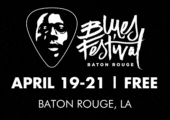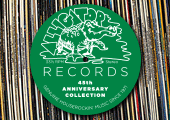I must object strenuously to a statement in Mark Humphrey’s review of Gayle Dean Wardlow, Stephen Calt, and Edward Komara’s King of the Delta Blues: The Life and Music of Charlie Patton (Knoxville, University of Tennessee Press, 2022), that appeared in Living Blues 284 (May 2023), p. 58. In this review Humphrey revisits an old canard. He writes about the earlier 1988 published version of the book (by Calt and Wardlow only): “It could have been published at least a decade earlier, were it not for some scholarly skullduggery committed by well-known blues writers who nameless shall here remain. (Who they were and what they did are not deeply hidden secrets.)”
So what was the point of not revealing the names? It’s all laid out near the beginning of Komara’s Preface (p. xviii), where he states that a complete draft of the Calt-Wardlow book manuscript (i. e., what eventually became the first 1988 edition) was ready for publishers in 1976, but that the manuscript “was rejected by the University Press of Mississippi on peer advice by David Evans, and suspended at another press when its reviewer Robert Palmer failed to respond or return the reading copy.” Then Komara adds: “It is intriguing to note that, at the time, Evans and Palmer were conducting competing research on Patton and his music.” Komara then goes on to list some of my and Palmer’s publications dealing with Patton. Komara also supplies a reference to Calt and Wardlow’s “Bitchin’ Boogie: An Open Letter to Blues Fans” published in 1981 in Living Blues (#50, p.5) as well as Blues Unlimited (#140, p. 39), where this insinuation first appeared, but Komara fails to mention my reply published immediately following it in Living Blues (p. 7) and in the next issue of Blues Unlimited (pp. 12-13). This insinuation by Calt, Wardlow, and Komara (“competing research”) has now become fact (“skullduggery”) in Humphrey’s review.
I hasten to point out first that Palmer and I were acting as reviewers independently from one another, nor were we co-researchers or co-authors of anything having to do with Patton. He and I had exchanged some correspondence on a variety of matters, and I had sent him a bit of information about Patton from my research, which he used with acknowledgment in his book Deep Blues (1982). This is the same sort of thing I have done with many other writers and researchers on various topics. I take no responsibility, however, for what Palmer did in respect to the Calt-Wardlow manuscript and don’t even know what publisher he was supposed to read it for. Komara’s recent Preface was the first place I had even learned of Palmer’s involvement. Anyway, at the most, my own negative report on the Calt-Wardlow manuscript delayed its progress toward publication by about one month, not “more than a decade.” The Director of University Press of Mississippi, on the advice of Mississippi blues researcher Dr. William Ferris, asked me to be a reader of the manuscript in a letter dated December 8, 1977. I must have replied immediately in the affirmative, as he sent the manuscript on December 16. Two weeks later (December 31) I submitted my report to the press and returned the manuscript without making a copy of it or taking notes about its information. My report ran to fifteen single-spaced pages and was accompanied by a two-page letter to the Director further explaining my recommendation not to publish it. Calt and Wardlow had the possibility to revise and resubmit to University Press of Mississippi or to find another publisher, which in fact they eventually did. I’m not responsible for the eleven years it took them to do this.
The manuscript I read in 1977 for University Press of Mississippi (actually a partial manuscript lacking five mostly analytical chapters) was revised by the authors for its 1988 publication, whether or not in consideration of any of my fifteen pages of criticism. My main general objections were that it did not take into consideration the research of anyone else on Patton and in an opening statement actually denied that there even was any other research, that the authors misinterpreted a lot of information, that they didn’t indicate which quotations from their informants were from recorded interviews and which were reconstructed from memory, that the writing style was frequently like that of a biographical novel or a piece for National Enquirer, that the lyric transcriptions were generally poor, and that there were many long digressions about other Mississippi blues artists (a “kitchen sink” type of writing that took the focus away from Patton). I wrote that “The authors are frequently unable to separate fact from their interpretation and opinion, and there is too much reconstruction of events and context without a solid evidential basis.” I did, however, write to the Director, “I don’t know whether you will want to continue to work with the authors or not. Their wealth of field data certainly has the makings of a valuable book. In any case, I hope they publish these data in some form. But they will certainly have to take into consideration the work of other researchers if they want their own study to be accurate and definitive. I hope you will provide them with a copy of my critique. I’ve made it more detailed than I normally would have in the interest of helping them get a head start on the needed revisions. You are welcome to reveal my name.” I had to conclude, though, that “I can’t recommend this manuscript for publication in its present form.”
The editorial and “peer review” process is a mixed blessing that every writer has to go through unless he or she self-publishes. I’ve been through it myself, and it can be humiliating to be rejected, criticized, or asked to cut down, expand, or revise. Sometimes the criticisms are quite helpful, but sometimes they are unjustified, or the author feels that they are. One can accept the criticisms or not, revise and resubmit, submit to another publisher, etc., but there are usually other publication outlets available. University Press of Mississippi wasn’t the only press in 1977 that might have been interested in a biography of Patton. The dozens of “university presses” that receive manuscripts try to identify one or usually two “expert” outside readers who have academic degrees and/or teaching positions or a track record of well regarded publications and are knowledgeable about the general or specific subject of the manuscript. There weren’t many of us like that in the blues field in 1977, and I would have been a logical candidate for being a reader of the Calt-Wardlow manuscript. Naturally, any reviewer with some knowledge of the subject matter is going to have opinions and a perspective about it or perhaps has done some research or writing about it. That can make it difficult to be “objective,” but who wants a reader that has no knowledge of the topic? So it’s an imperfect process, but anything that is worthwhile usually gets published in some form if the author doesn’t give up.
In the case of the Calt-Wardlow manuscript, I didn’t consider it “competing” or a “rival” to my own research or publication plans. I don’t, in any case, view research as competition. I have never written a real biography of Patton and never expect to. My longest publication about him is more of a personality portrait and is 115 pages in length, compared to 341 pages of the 1988 Calt-Wardlow edition and 474 pages of the new edition. My piece contains many biographical facts but doesn’t purport to be a full biography the way the Calt-Wardlow book does. I won’t comment further on that book here, but readers of its new edition should compare it to what else has been written about Patton and should compare its lyric and musical transcriptions to what Patton actually sings and plays. I absolutely reject any insinuation or allegation that I somehow suppressed or unduly delayed the publication of the work of Calt and Wardlow, and I expect an apology from Humphrey, Komara, and Living Blues for these recent printed statements.
David Evans




















